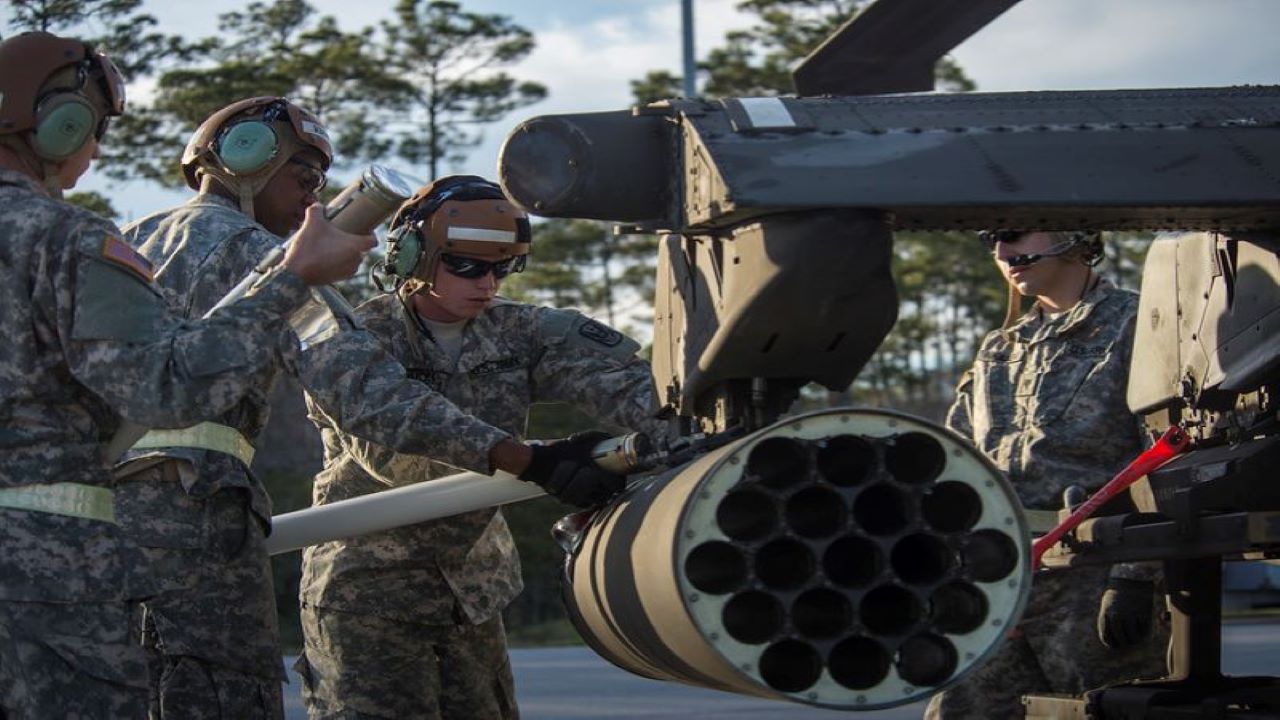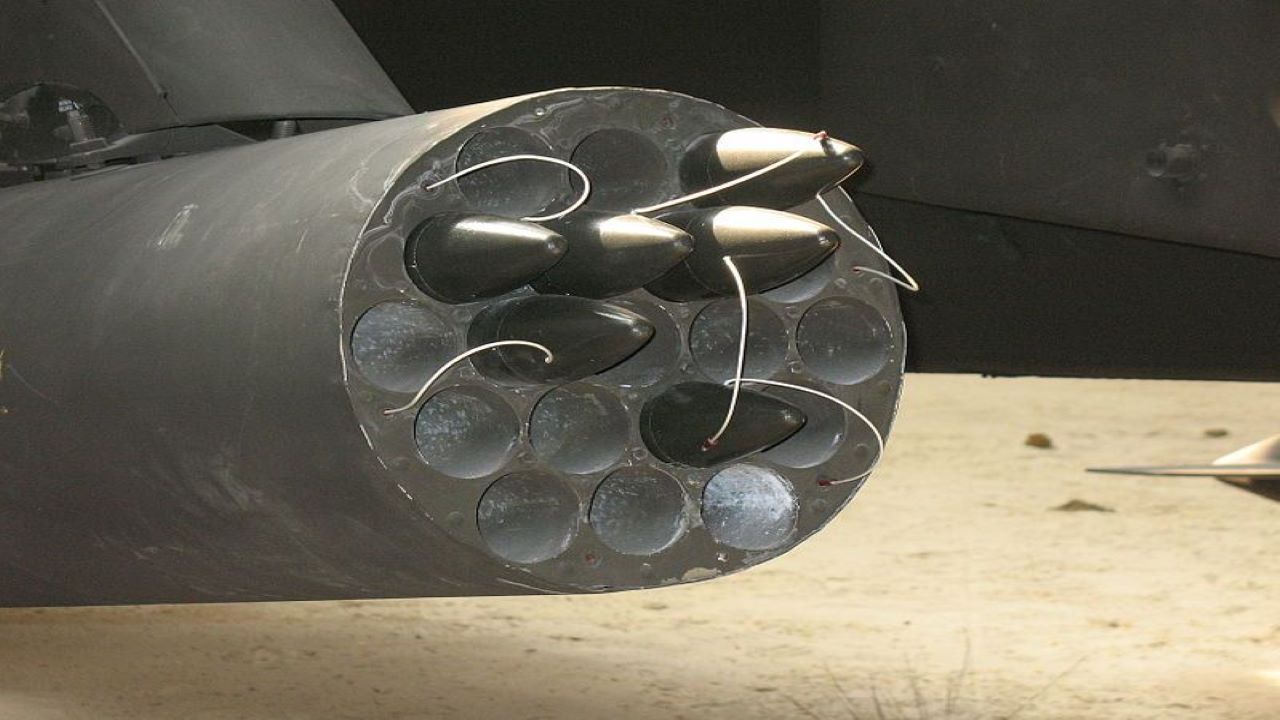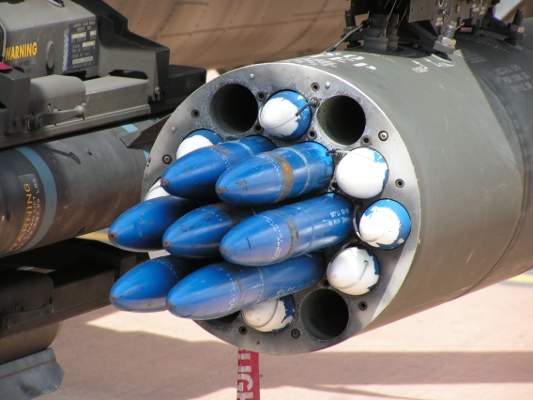The Hydra-70 rocket system is a family of 2.75in unguided air-to-surface rockets derived from the Mk 4/Mk 40 folding-fin aerial rocket (FFAR) developed in the 1940s. It is the most commonly used helicopter-launched weapon system in the world.
The rockets are used to perform various roles, including anti-material, anti-personnel, air-to-ground suppression and illumination. General Dynamics Armament and Technical Products (GDATP) is the prime contractor for production of the Hydra-70 rocket system.
Hydra-70 system development
The original Mk 4/Mk 40 FFAR was developed by the Naval Ordnance Test Station as an air-to-air weapon. It was later modified for air-to-ground use.
The Hydra-70 lacks precision when compared to other guided missile systems such as the Hellfire II. The Hydra-70, however, is less expensive. The US Army initially planned to reduce the production of the systems, but revised its decision considering their cost-efficiency.
Efforts are ongoing to improve the overall accuracy of the Hydra-70 rocket system. The system is being tested to include a laser guided system such as the Hellfire II to improve its performance.
The Hydra 70 can be converted into a laser-guided munition using the Advanced Precision Kill Weapon System (APKWS) conversion kit developed by BAE Systems.
Rocket system design and warheads
The Hydra-70 rocket system is 2.75in in diameter, between 55in and 70in-long and weighs 23lb to 27lb. It comprises three main components, the Mk 66 MOD 4 rocket motor, a warhead and a point-detonating remote-set fuse.
The Mk 66 MOD 4 motor has a diameter of 2.75in, is 41.7in-long, and weighs 13.6lb. The rocket system can fire at a speed of 2,425ft/s (739m/s). Maximum range of the system is 11,500 yards (10,500m).
The Hydra-70 rocket system can be paired with nine different warheads categorised into unitary and cargo. Unitary warheads are fitted with detonating warheads, whereas cargo warheads are fitted with airburst range settable or fixed stand-off fuses.
The nine warheads used with Hydra-70 include the M264 smoke, M255A1 flechette, M257/M278 illuminating flare, M278 infrared flare, M151 high explosive (10lb), M229 high explosive (17lb), M156 (WP), WTU-1/B (practice) and M274 (practice) smoke signature. M264 smoke warhead is filled with red phosphorus and used for smoke obscuration. It is 26.9in-long and weighs 8.6lb.
The M255A1 Flechette contains 1,179 60-grain hardened steel flechettes. It is used against light material and personnel targets. Upon firing, the flechettes contained in the warhead form a disk-like mass, with each flechette taking an independent trajectory. The warhead is 26.9in long and weighs 14lb.
The M257/M278 illuminating flare is used for battlefield target illumination and includes an ignition system, flare, parachute, drogue parachute assembly, fuse and delay assembly. The warhead can illuminate an area of 1km². It is 29.1in long and weighs 11lb.
The M278 infrared flare is also used for battlefield illumination with infrared goggles. It can provide infrared light for three minutes. The warhead is 29.1in long and weighs 11lb.
The M151 high explosive is an anti-personnel warhead, which breaks into thousands of high velocity fragments upon detonation. It is 16.2in long and weighs 9.3lb. M229 high explosive is a heavier variant of the M151. It is 26in long and weighs 17lb. M156 (WP) is a smoke warhead filled with white phosphorus. It is 16.2in long and weighs 9.65lb.
The WTU-1/B is a 16.2in long fused warhead and weighs 9.3lb. M274 is identical to the M151 and is used to provide training with a smoke signature. It is 16.2in long and weighs 9.3lb.
Hydra-70 rocket launch system and orders
Hydra-70 rockets are fired from the LAU-61 19-tube, M261 19-tube, LAU-68 7-tube and LAU-131/A 7-tube rocket launchers.
The rocket system can be installed on most rotary and fixed-wing aircraft, such as the AH-64 Apache, AH-1Z Viper, AH-1 Cobra, OH-58 Kiowa, UH-60 Black Hawk, P-3 Orion, MH-6 Little Bird, A-10 Thunderbolt II, AV-8B Harrier II, UH-1 Iroquois, F-4 Phantom II, F-16 Fighting Falcon, F/A-18 Hornet, OV-10 Bronco, A-4 Skyhawk and A-6 Intruder.
GDATP was awarded a $900m five-year contract by the US Army in May 2005 for the production of Hydra-70 rockets and warheads. Deliveries concluded in 2010. In August 2010, GDATP was awarded a $278m contract with three additional one-year options. A $33m contract was awarded in March 2011 to provide Hydra-70 rockets, warheads, motors and service support.
GDATP delivered the four-millionth Hydra-70 rocket to the US Army in May 2011. In June 2011, GDATP won a $286m contract to produce Hydra-70 rockets.
GDATP was awarded a $224m contract to supply Hydra-70 rockets and provide engineering support services in February 2013. GDATP received a $67.5m contract from the US Army for Hydra-70 air-to-ground rockets in August 2013.
General Dynamics Ordnance and Tactical Systems was awarded a five-year contract by the US Army Contracting Command for the production of Hydra-70 rockets for the US military and its allies in 2014. A $60m contract modification was awarded in August 2017.
In October 2016, General Dynamics received two modification contracts from the US Army for the delivery of Hydra-70 air-to-ground rocket system.
A $149.2m contract modification was awarded to General Dynamics for Hydra-70 rockets, motors and related components in June 2018.
The US Department of Defense (DoD) awarded a contract worth $3.42bn to General Dynamics Ordnance and Tactical Systems for manufacturing Hydra 70 rockets in June 2020.







